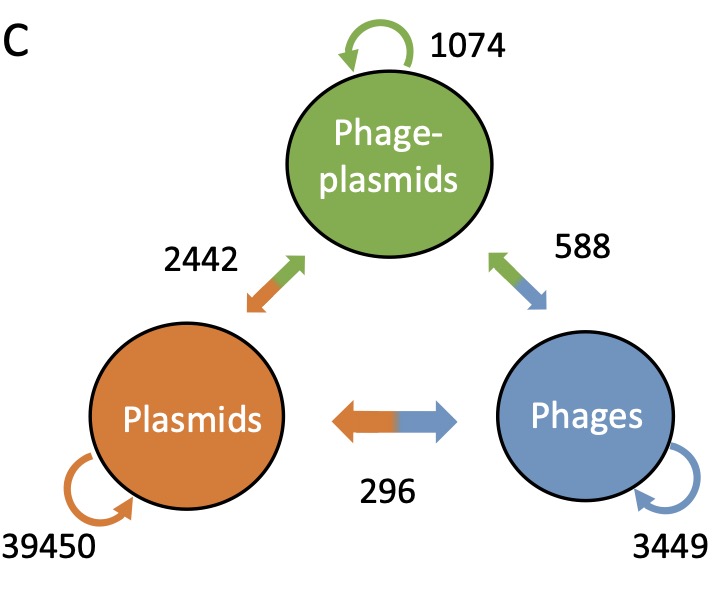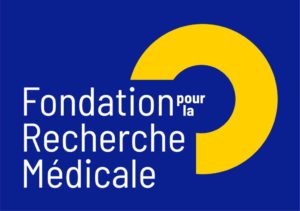
Phages and plasmids are regarded as distinct types of mobile genetic elements that drive bacterial evolution by horizontal gene transfer. However, the dis- tinction between both types is blurred by the existence of elements known as prophage-plasmids or phage-plasmids, which transfer horizontally between cells as viruses and vertically within cellular lineages as plasmids. Here, we study gene flow between the three types of elements. We show that the gene repertoire of phage-plasmids overlaps with those of phages and plasmids. By tracking recent recombination events, we find that phage-plasmids exchange genes more frequently with plasmids than with phages, and that direct gene exchange between plasmids and phages is less frequent in comparison. The results suggest that phage-plasmids can mediate gene flow between plasmids and phages, including exchange of mobile element core functions, defense systems, and antibiotic resistance. Moreover, a combination of gene transfer and gene inactivation may result in the conversion of elements. For example, gene loss turns P1-like phage-plasmids into integrative prophages or into plasmids (that are no longer phages). Remarkably, some of the latter have acquired conjugation-related functions to became mobilisable by conjugation. Thus, our work indicates that phage-plasmids can play a key role in the transfer of genes across mobile elements within their hosts, and can act as intermediates in the conversion of one type of element into another.
To find out more, please read the full story recently published in Nature Communications and the perspective papers in Trends in Microbiology and in Trends in Genetics.





